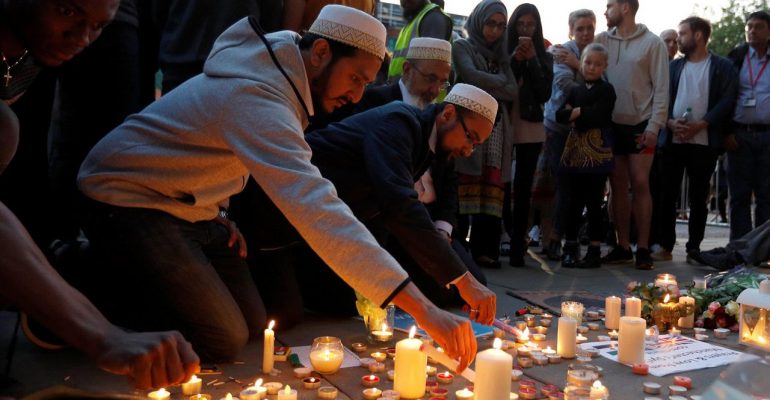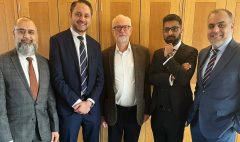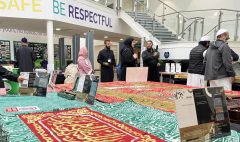Manchester’s Muslims fear backlash after concert attack
May 24, 2017 2023-08-13 12:38Manchester’s Muslims fear backlash after concert attack

Manchester’s Muslims fear backlash after concert attack
In the wake of the terrorist attack at the Ariana Grande concert in Manchester this week, Muslims along with the rest of the diverse British city are mourning the dead and tending to the wounded. But for Muslims in particular, the suicide bombing that left more than 20 dead and dozens wounded on Monday (May 22) has also sown fear. They worry about a backlash from those who would blame all followers of Islam for the carnage, for which the so-called Islamic State takes credit.
Many in Greater Manchester’s sizable Muslim population — about 15 percent of the area’s 2.5 million people, many of whom have lived in the metropolis since the 1960s — now wonder how safe they are on the streets, and in their mosques and schools. Generally, people have been united in their solidarity, said Zahid Hussain, a local author and poet who is Muslim. “People are coming together — but there have been skirmishes.”
The city feels tense. Hussain received calls on Tuesday evening about a 14-year-old Muslim girl being mocked at school. And a Jewish friend told him he hadn’t sent his children to school that day. “They thought an attack may be imminent in their own community,” he said. Fiyaz Mughal, founder of Tell MAMA, which monitors and records hate crimes against Muslims, reported there had been a “measurable” spike in incidents after the attack, including verbal abuse, spitting and headscarves pulled from the heads of Muslim women.
A door at a mosque in Oldham, just outside of the city, was burned just hours after the attack on Sunday evening. Police officers were also put on patrol outside Glasgow’s Central Mosque in Scotland after the building’s outside wall was vandalized with graffiti: the word “ISIS” enclosed in a heart.
Musa Naqvi, another Manchester resident who works in the public health sector, worries about hateful sentiments manifesting online. “There is a gap that needs to be bridged between the security services, the police and the Muslim community,” Naqvi said. “Because if Muslims still get bashed in the media and told to be more proactive, they (the authorities) are not going to win the hearts and minds of the community…It was really surreal for me,” he said. “This guy (Abedi) lives five minutes down the road from my house. This is the middle of Manchester — not an industrial area . . . How did he get ahold of a bomb and make it in the first place? It’s very disturbing . . . and rings alarm bells and anxiety about the area we’re living in.”
Source: Religious News Service (RNS)








